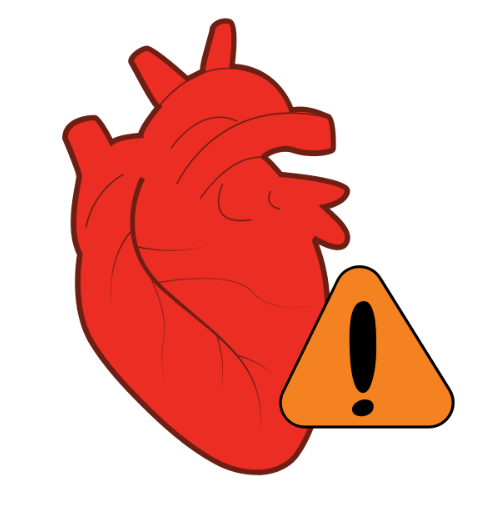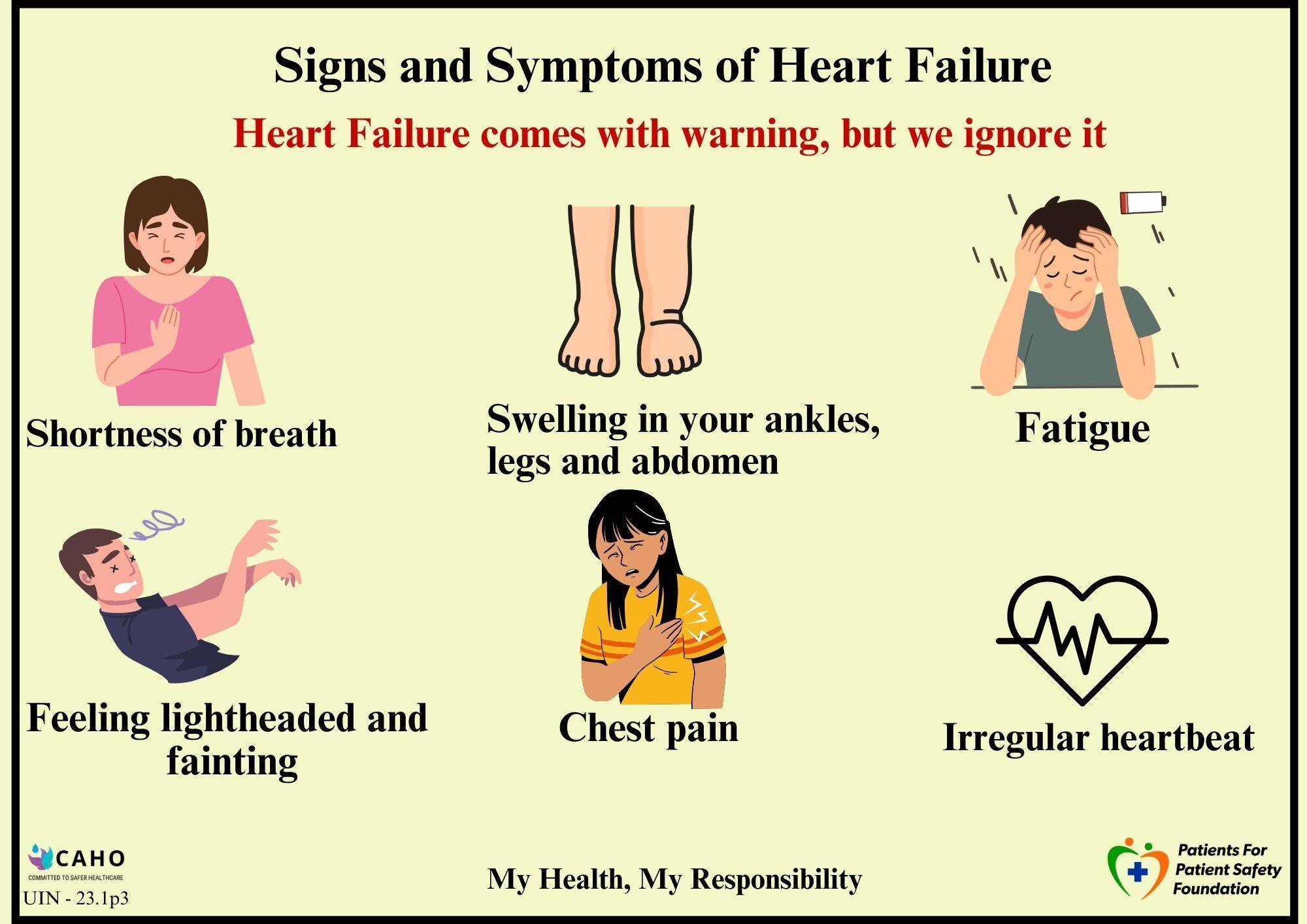
Heart failure is a medical condition that arises when the heart is unable to pump blood effectively to meet the body's needs. It is usually a long-term, chronic condition. Heart failure does not mean the heart has stopped working, but rather that it is weakened and struggling to function properly it could be due to weak heart muscles, malfunctioning of valves and several other conditions.
Understanding the causes, symptoms, and treatment options for heart failure is vital for managing the condition effectively and improving patient health. Early detection and treatment, along with lifestyle changes and proper medical care, can contain and significantly improve heart conditions

Anyone or several of the following

The severity of the condition and symptoms depends on how much of the heart's pumping ability has been affected. The first step in managing heart failure symptoms is knowing your baselines or what’s normal for you. The symptoms of heart failure may resemble other health problems, so always see your healthcare provider for a diagnosis.
If heart failure issues become severe, several dire complications can result. The most common of these include stroke, organ failure, kidney damage or failure, liver damage, sudden cardiac death, and other heart problems that may lead to sudden death.
Your healthcare provider will ask about your health history. and examine your physical condition and vitals. You may need tests such as:
The cause of heart failure and the severity will guide the treatment plan. If heart failure is caused by a valve problem or coronary heart disease, then you may need a procedure including valve repair or replacement. If heart failure is caused by a problem such as anaemia or an infection, you may need medicine to treat this problem.
Some causes of heart failure are reversible or short-term, such as an acute infection. For some causes of heart failure, there may be no cure. But forms of treatment and medication can help contain the situation. They will also implant a heart device to keep it going.
Adopting healthy habits can help manage heart failures, such as: